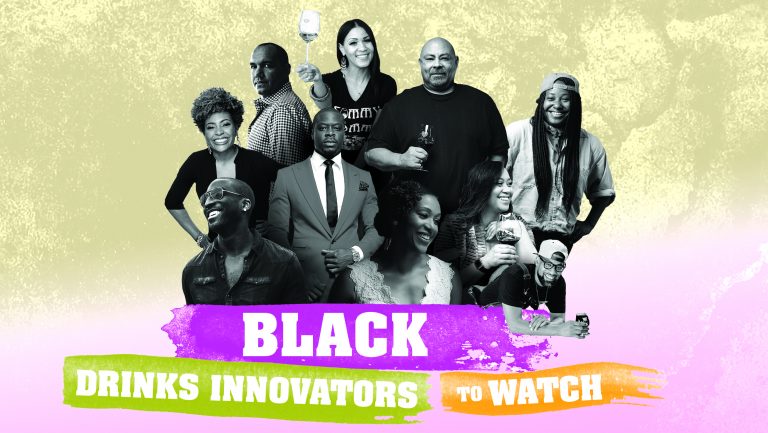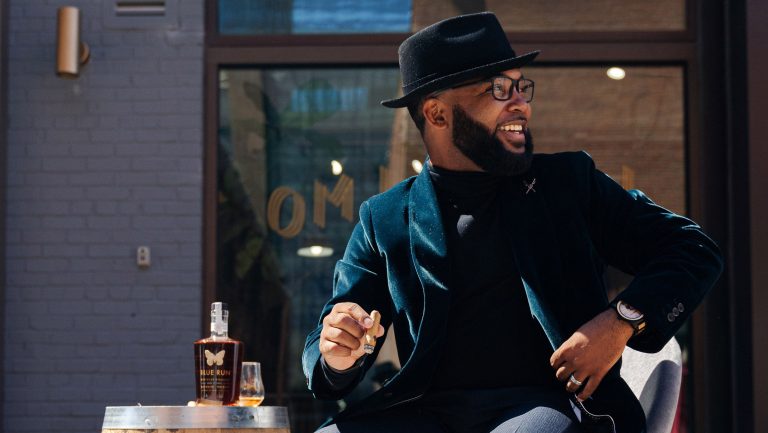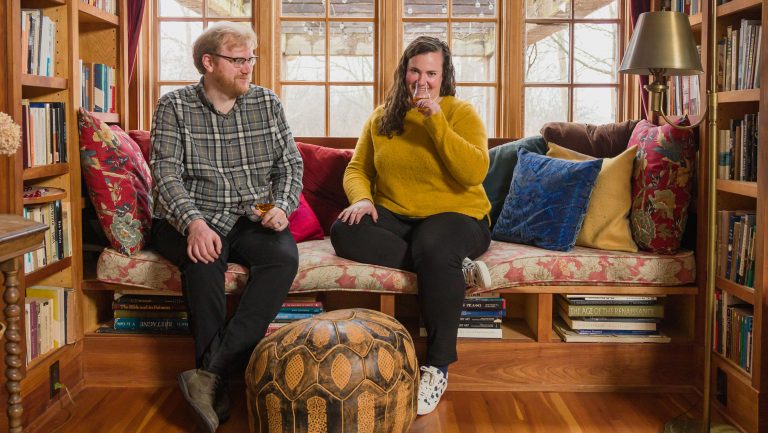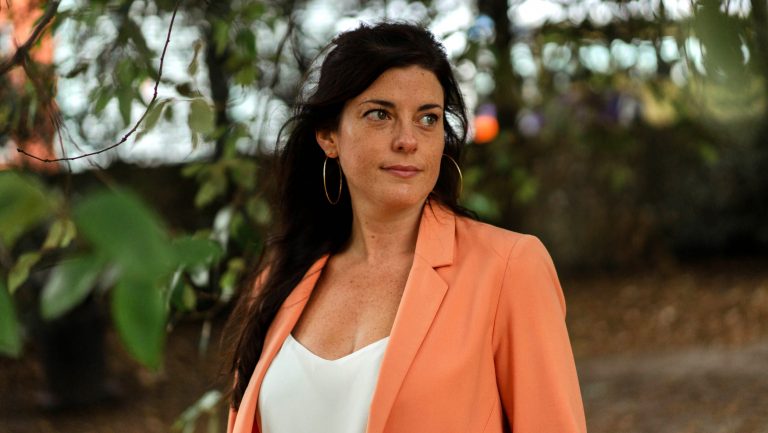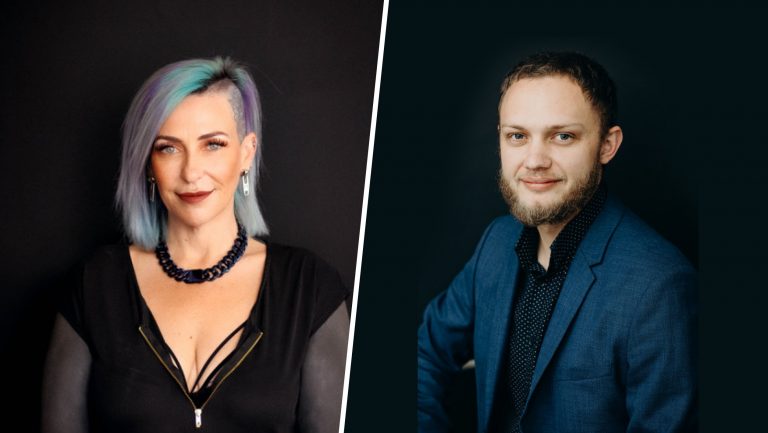It’s been a long time coming, and progress is still slow and fitful, but Black people are having increasingly more influence in the world of wine, beer, and spirits. Some have well-established reputations, including André Mack, winemaker and owner of Maison Noir wines; legendary mixologist Franky Marshall, who has mentored countless Black spirits professionals; and Brooklyn Brewery’s supremely talented brewmaster, Garrett Oliver.
Beyond them, however, is a growing number of tough, imaginative Black men and women, less widely known, who are determined to make a mark in their trade through hard work and creativity. And, as they pave new paths, they’re just as determined to find ways to raise up others.
In this article, we profile 10 professionals who are helping make the world of beverage alcohol a more delicious and inclusive place.

Don’t miss the latest drinks industry news and insights. Sign up for our award-winning newsletters and get insider intel, resources, and trends delivered to your inbox every week.
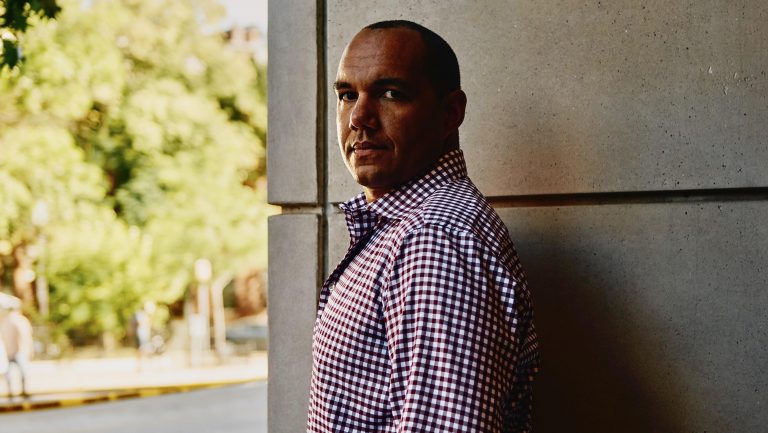
Diversity Change Agent
TJ Douglas, Owner, Urban Grape, Boston
With $10,000 of their own money, TJ Douglas, 42, and his wife, Hadley, owners of The Urban Grape, a wine, craft beer, and spirits store in Boston, founded The Urban Grape Wine Studies Award for Students of Color.
In a little more than a week after the June launch, the Award’s fund had grown to $83,000 through contributions from about 100 customers and friends.
Douglas will mentor the selected student. He or she will also attend a yearlong certification course at the Elizabeth Bishop Wine Resource Center at Boston University and receive a one- year paid internship: four months each working at The Urban Grape, distributor M.S. Walker, and Tiffani Faison’s Big Heart Hospitality restaurant group.
It’s a crash course in all aspects of selling wine—wine store, distributor, restaurant—and a path Douglas modeled on his own 20-year career in the wine and hospitality industries. He founded The Urban Grape 10 years ago, when there were even fewer Black people in the fine wine business.
“The big problem with our industry is that there are very few people of color in it. and a lot of that has to do with the base from which we source employees,” Douglas says.
His hope is that this program will bring about “generational change” for the recipient, the recipient’s community, and for the wine industry in Boston. The Douglases hope to create a foundation that will partner with other colleges’ wine programs, in addition to BU, and, in cases where perhaps a historically Black college or university may not have a program, help start one.
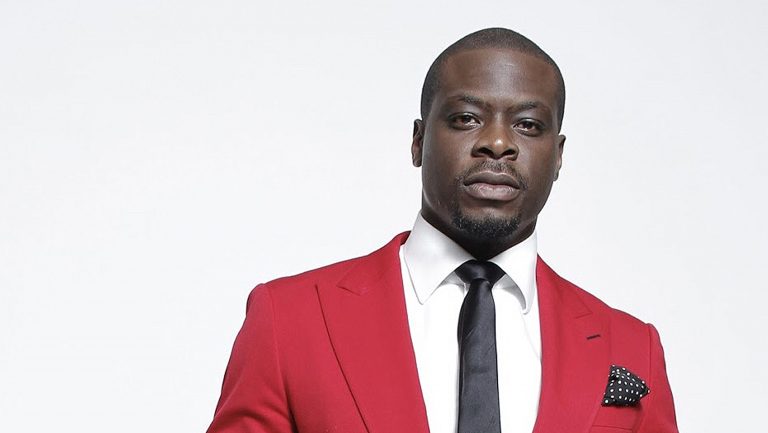
Harnessing the Power of Hip-Hop
Jermaine Stone, Cru Luv Selections, Brooklyn, New York
Wine needs to enlarge its audience, and Jermaine Stone is someone who understands how to make that happen. In addition to being president and CEO of Cru Luv Selections, a wine importing and consultant company in Brooklyn, Stone hosts a podcast, Wine & Hip Hop, which blends wine and hip-hop culture.
As a promising teenage rapper, Stone got a summer job packing boxes for Zachys Auctions in Westchester County, which led to more than a decade in the world of fine wine. Stone has managed auctions in Hong Kong, retrieved consignments in Switzerland, and was a founding director for Wally’s Wine & Spirits of Los Angeles’s foray into the auction business. In the process, this young man originally from the Bronx, whom many in the auction world were curious about, brought with him hip-hop—“America’s greatest export,” he calls it.
“Wine can be enjoyed across all demographics the same way that hip-hop can be,” Stone says. “And they’re both better when you pair them together.” On the podcast, Stone interviews hip-hop personalities and wine professionals, recently hosting Domaine Dujac’s Jeremy Seysses to talk about his famous Burgundy estate (as well as the song in which Jay-Z drops Dujac’s name). In an earlier episode, Stone talked to LeA (aka the Granddaughter of Hip Hop) about how to transition from Moscato by pairing Drake’s “Nice for What” with a bottle of 1990 Suduiraut from Sauternes.
Stone, 35, describes recently asking one of his oldest friends—a rapper whom he describes as “super rough around the edges but way into wine”—why he thinks wine isn’t more widely embraced by Black people. “He said, ‘No one introduces it to us. Someone needs to introduce it to us first before people can turn into wine lovers.’ That’s our mission, and I think we’re further along than we’ve ever been.”
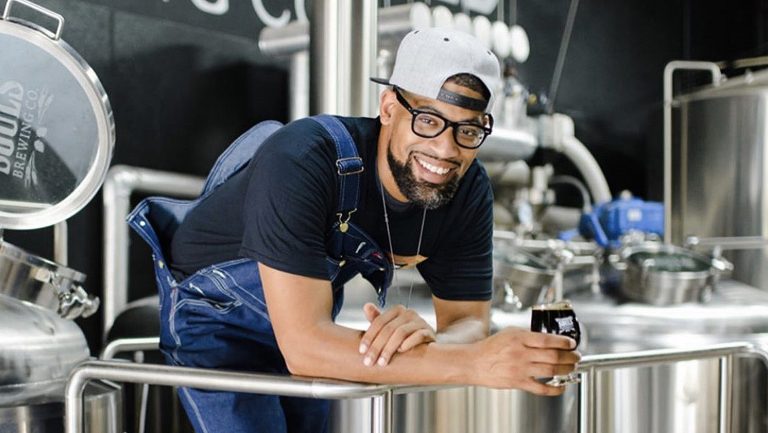
Brewing for Social Justice
Marcus Baskerville, Weathered Souls Brewing Co., San Antonio
Marcus Baskerville, cofounder and head brewer of Weathered Souls Brewing Co. in San Antonio, created Black Is Beautiful, a global collaboration among breweries and beer lovers in response to police violence against Black people.
Weathered Souls posted a base recipe for a stout and invited other breweries to tweak it to their liking and use the Black Is Beautiful label, which provides room for each brewery’s logo. Participating breweries are then asked to donate proceeds from the sales to a local organization that fights for social justice. Since the initiative was announced, more than 1,000 breweries—located in all 50 states and 20 countries—have signed on, Baskerville reports.
“I don’t think this has ever been done in history—that we’ve had more than a thousand separate businesses participating in the moving of commerce for social justice. To see something like that is absolutely amazing,” he says.
When Baskerville, 35, was a teenager growing up in a predominantly white neighborhood in Sacramento, California, “I used to get pulled over all the time for driving a nice vehicle,” he recalls. And once, he and a relative were at a party where a guest was stabbed, and when they took that guest to the hospital, “we were treated as suspects,” he adds.
Weathered Souls’ money from its Black Is Beautiful sales will primarily go to 100 Black Men of San Antonio, an organization that provides mentors for Black children, “especially boys, which is important,” Baskerville says.
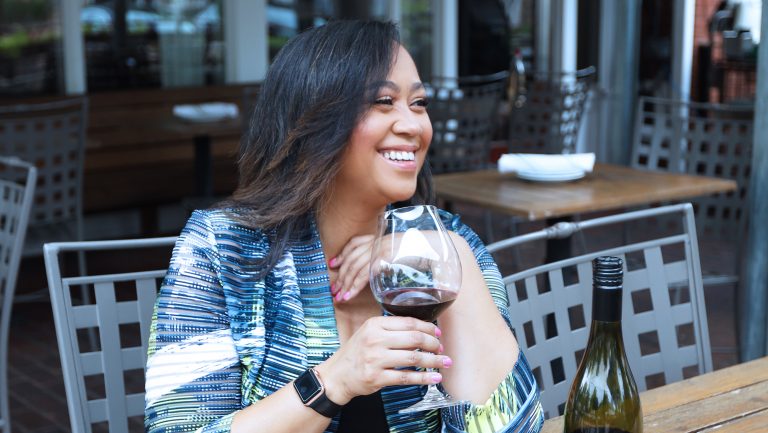
Elevating Unheard Voices
Sukari Bowman, The Color of Wine, Atlanta
Sukari Bowman, an Atlanta-based real estate banker, and her Black, college-educated, sophisticated, financially successful friends love wine. She and her brother created a blog called Love & Vines where they discuss food, wine, and music. Yet as she began to read wine publications seriously, she noticed that no one looked like her. So she set out to find them.
Since 2017, Bowman, 48, has been creating an oral history of people of color in the wine world for her podcast, The Color of Wine. Her brother, Shomari, provides technical help and great music. Today, they have accumulated 70 interviews, which have been downloaded and listened to more than 20,000 times, she says.
“Creating a space that celebrates people of color in the wine industry gives me a home base. I can go out and explore the world of wine confidently because. I carry all these stories, all these connections with me,” Bowman says.
“It is so important to memorialize our stories in our own words. As we all move and grow in this industry, we can use the stories of those who came before us and are still blazing the trail to learn, to find inspiration, and to see what is possible,” she says.
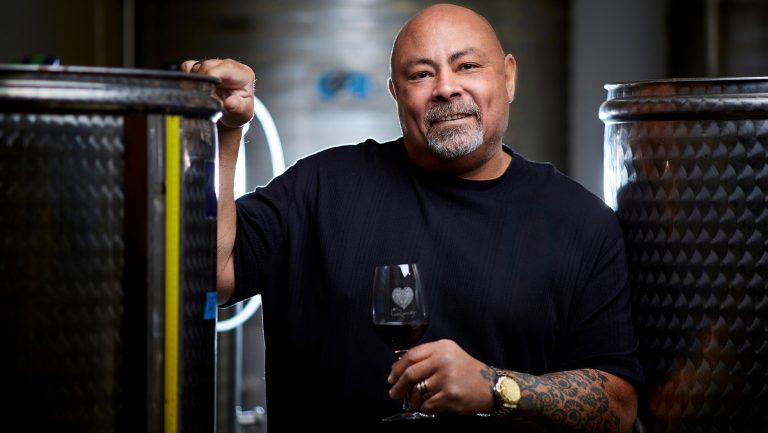
Using Success to Pave the Road for Others
Phil Long, Longevity Wines, Livermore, California
Phil Long and his late wife, Debra, began making wine in their garage in Livermore, California in 2003. In 2008, they opened their urban winery nearby and built production to 3,000 to 3,500 cases a year. They called their enterprise Longevity, a play on Long’s last name that also highlights a hallmark of a successful business.
Long’s winery’s track record of success, his position as president of the Association of African American Vintners (AAAV), and his status as a government-certified minority-owned business helped him attract the attention of Bronco Wine Co., one of the largest wine producers in the U.S.
In March, Long and Bronco announced a partnership that will give Longevity’s Classic label wines—a Chardonnay and Cabernet Sauvignon—a huge jump in nationwide availability and volume (potentially “hundreds of thousands of cases,” Long reports), a first for a Black-owned-and-operated winery. Long, 61, will make these California-designated wines at Bronco’s headquarters and he’ll continue to produce—with his son and assistant winemaker, Phil Jr.—his Reserve wines at his Livermore facility.
“I didn’t get in the business to become a Black winemaker. I just wanted to make wine. And I never wanted to use [being Black] to leverage business,” he says.
Yet Long does want to use his unique position to help others. Only about “1 percent of 1 percent of all winemakers are Black,” he says. “One of the AAAV’s goals is to let the public know that we are here. We must establish a career path for African American students coming up, and that’s one of the primary goals of our internships, scholarships, and mentorships—to promote the idea that winemaking is an available career possibility for them.”
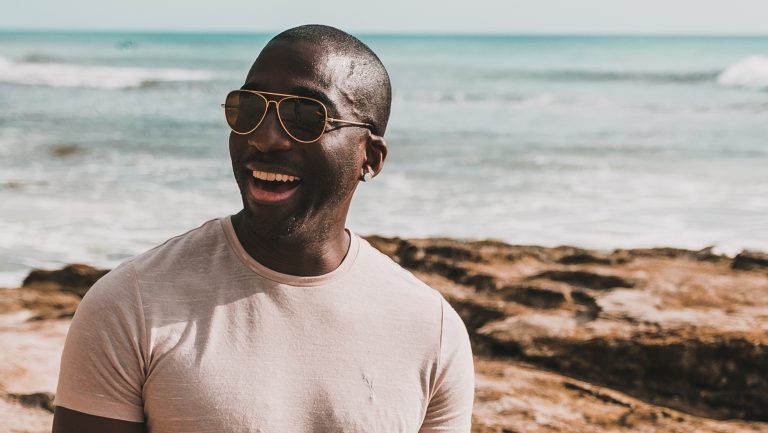
Elevating Rum While Honoring History
Marc Farrell, Ten To One Rum, New York City
With the creation of his Ten To One brand last year, Marc Farrell has begun what he describes as “a revolution in people’s perception of rum.”
Farrell, 37, left his home in Trinidad and Tobago when he was 16 to study chemical engineering at MIT. He’s lived in the U.S. for many years, during which he earned a Harvard MBA and served as a vice president at Starbucks (he also earned a master’s degree in public policy from Cambridge).
The self-described “rum nerd” watched as tequila, gin, vodka, and American whiskey all experienced image upgrades over the past decade while rum—the distilled spirit of the Caribbean, a region with strong connections to Africa and a history of colonialism and slavery—remained stuck in the public imagination, associated with beach vacations, college parties, and such clichés as pirates and sea monsters. Rum doesn’t get the “reverence or appreciation it deserves,” he says.
Farrell created Ten To One to honor the Caribbean’s history and provide a modern take on the spirit by blending rums made from “different distillation methods, different provenances, and different terroirs,” he says. “This is more than the story of a Trinidadian making rum from Trinidad.”
Ten To One refers to Trinidad and Tobago’s first prime minister’s belief that a federation of 10 Caribbean countries was stronger than each going it alone, an idea embraced and expanded by organizations that succeeded the original Caribbean Federation. Ten To One Dark ($43) is sourced from producers in Trinidad, Barbados, Jamaica, and the Dominican Republic; White ($29) is from Jamaica and the Dominican Republic. Both have minerality and acidity, and, according to Farrell, are most definitely not designed to be mixed with Coke.
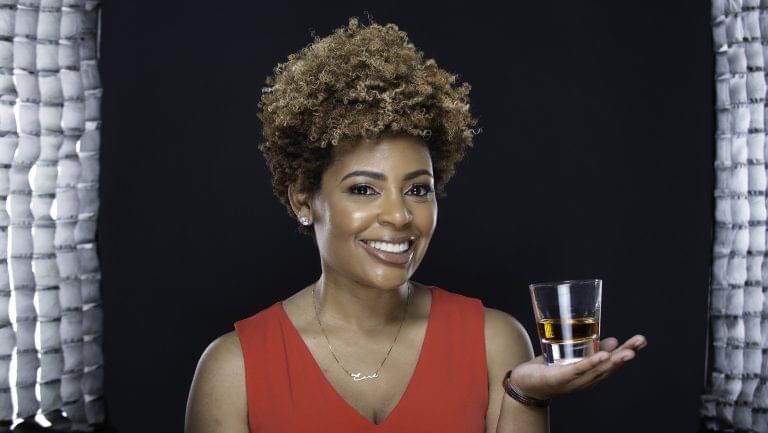
Highlighting a New Community in High-End Whiskey
Samara Rivers Davis, The Black Bourbon Society, Atlanta
Samara Rivers Davis bought her first bottle of bourbon, Four Roses Single Barrel, while she was on vacation, and she loved the taste and texture of it. When she returned home, she bought others and eventually began experimenting with different cocktails.
Now an event planner living in Atlanta, Davis had a career-changing experience when a premium spirits brand manager hired her to help stage a series of events. When she looked at the manager’s marketing materials, “no one looked like me,” she recalls. “So I began pulling together an audience, proving to the brand that there are many African Americans who love premium whiskey and have high discretionary incomes.”
A year later, in 2016, she founded the Black Bourbon Society (BBS), a community for enjoying and continuing to learn about whiskey. “We are matchmakers,” Davis said. Brands such as Jim Beam, Maker’s Mark, and Heaven Hill often sponsor events. The BBS has 19,000 total paying members worldwide, she says. It focuses on “getting members up to speed with the vernacular and the process of making whiskey and allowing them to see what these brands look like face-to-face.”
Davis, 39, is now a certified executive bourbon steward, accredited by the Stave & Thief Society, a Kentucky educational and certification organization. Before the coronavirus lockdown, BBS was events- and travel-based, with tastings in major cities and trips to distilleries. Now, Davis says, “We’re developing daily virtual content for our members to stay engaged. Our new motto is Keeping Spirits High with Spirits. We’re a safe haven.” On the podcast “Bonded in Bourbon,” Davis and her husband, Armond, review whiskey “from his and her perspectives.” Their newest venture, Diversity Distilled, will help brands “recruit, retain, and promote diverse talent.”
BBS members “don’t fit the mold that brands had put us in, the urban demographic mold,” which is younger and pitched “with inexpensive, introductory-level spirits,” she says. “If a rapper has a bottle, I don’t want it.” BBS’s members, she explains, are “CEOs of their own companies, professors, teachers, in management. They want high-end whiskey. It wasn’t that some brands were excluding us from their marketing; some just didn’t know we existed.”
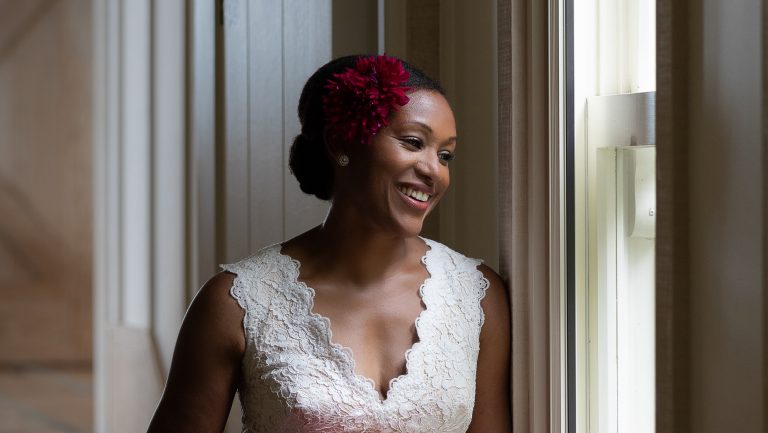
Aiming for the Very Top
Angela Scott, Poised to Become the First Black Master of Wine, Napier, New Zealand
Angela Scott is not someone who shies away from difficult things. She’s worked in Haiti with the Peace Corps and practiced human rights law in East Africa and Central America.
Growing up in Pennsylvania with parents who cared a lot about food and enjoyed wine occasionally, Scott became fascinated by wine as a teenage exchange student in Spain. “Drinking wine with my host family was mind-blowing because it really enhanced the food and vice versa,” Scott explains.
After practicing law for many years, she made the switch to wine and began pursuing the elite Master of Wine degree, which a mere 393 people worldwide hold. She was accepted into the program in 2018, and if she passes on her timetable, Scott, 44, will become the world’s first Black person to hold the Master of Wine title.
“I am pursuing the MW because I love to learn. The syllabus is insane; it’s nerd paradise,” she writes from New Zealand, where she lives with her husband, a winemaker and MW.
But she is also pursuing the degree for credibility. “I sought out formal education because unlike my white counterparts, I do not receive the presumption of belonging; as Black people, we must prove ourselves over and over again. We are asked for credentials where others are presumed qualified.”
What will it mean to her to become the first Black Master of Wine in the world? “I would be incredibly proud. But I would not be satisfied being alone. It would mean it is a start, but there is more work to be done,” Scott adds.
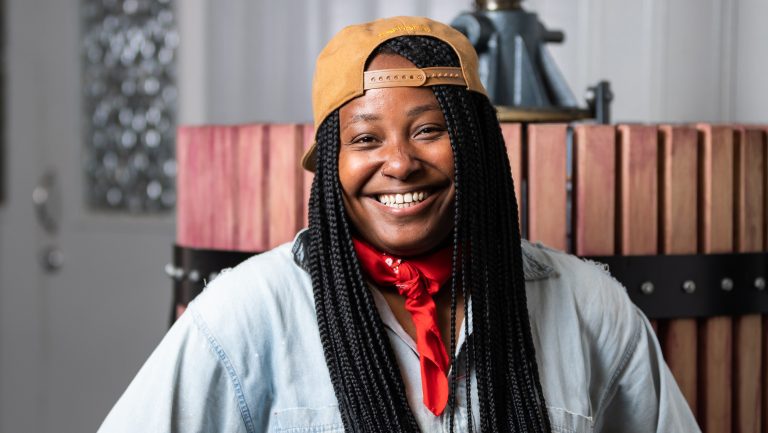
Pioneering Land Ownership
Krista Scruggs, Winemaker, Zafa Wines, Burlington, Vermont
Krista Scruggs is a queer, Black, female winemaker in Vermont who became the owner of that state’s 18th Black-owned farm with her recent purchase of 50 acres on which she’s been growing grapes for a few years.
Scruggs’s popular Zafa Wines are biodynamically grown sparkling wines made with cold-hardy hybrid grapes such as Frontenac Blanc, Louise Swenson, and La Crescent (and sometimes also with cider). A sample Zafa tasting note reads: “No sulfur additions, fining, filtering, or funny business in the winery, just fucking fermented juice.”
A native Californian, Scruggs grew up helping her grandfather tend his farm. A job as logistics coordinator for Constellation Brands taught her every aspect of wine production and opened her mind to the possibility of winegrowing. She learned to prune vines in Washington and then, through a labor-abroad program, worked for winegrowers in Italy and France. “I sought out growers across the world who would house me and feed me, and I would work for them in exchange for their knowledge,” says Scruggs, 35.
Back in the U.S., she landed a job in 2016 working with Vermont superstar winemaker Deirdre Heekin at her winery, La Garagista, and as a farmhand with Heekin’s husband, Caleb Barber. With grapes from a La Garagista vineyard and foraged apples, Scruggs made her first vintage of Zafa wines in 2017 and lightning struck. Today, there’s a waiting list to purchase her wines.
In March, Scruggs partnered with the Black-owned Clemmons Family Farm to grow crops embedded in the history of African Americans (Zafa refers to a difficult-to-explain anti-colonialist mindset). “Black farmland ownership is security. Controlling your food source is a form of protest,” she says.
“My mother told me that a closed mouth rarely gets fed,” Scruggs says. “I’ve come to embrace that as my way of life.” So she urges the women she hires to be outspoken, too. “That’s the point of carving a path.”
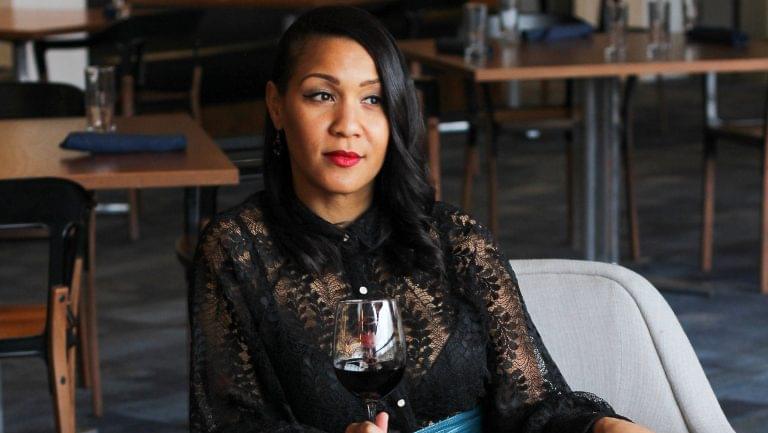
Empowering Others Through Education
Larissa Dubose, Sales Manager, Justin and Landmark, and Director of Education, Black Wine Professionals, Atlanta
Larissa Dubose understands the value of wine education. Certified as a sommelier with the Court of Master Sommeliers and a specialist of wine from the Society of Wine Educators, she is one of a handful of senior sales managers in the fine wine space, representing California wineries Justin and Landmark in many Southeastern states.
Dubose, who’s passionate that others should have the same access to wine education as she’s had, recently took on an important new role as director of education for the Black Wine Professionals network that activist Julia Coney is assembling. Dubose, 43, will create educational content and provide resources and opportunities for network members.
Bringing people into the world of wine by demystifying it is a role Dubose has played for years, both on her blog, The Lotus and the Vines and on “The Perfect Pairing,” the monthly IG Live videos she now produces with Jordan Traylor, a chef and sommelier. Her mission: to bridge “the gap between the wine novice and the wine connoisseur.”
“Wine knowledge is powerful,” Dubose says. “I see too many people give a piece of their power away when the wine list comes to the table by handing the wine list to someone else. I want more of us to have that power.”

Dispatch
Sign up for our award-winning newsletter
Don’t miss the latest drinks industry news and insights—delivered to your inbox every week.
Dorothy J. Gaiter, senior editor of The Grape Collective, conceived and wrote The Wall Street Journal’s wine column, “Tastings,” from 1998 to 2010 with her husband, John Brecher. They’ve written four wine books and created the “Open That Bottle Night” annual celebration of wine and friendship. Gaiter has been a reporter, editor, columnist, and editorial writer at The Miami Herald, The New York Times, and The Journal, which twice nominated her work on race for the Pulitzer Prize and once for “Tastings.” She’s won awards from the Newswomen’s Club of New York and National Association of Black Journalists.


